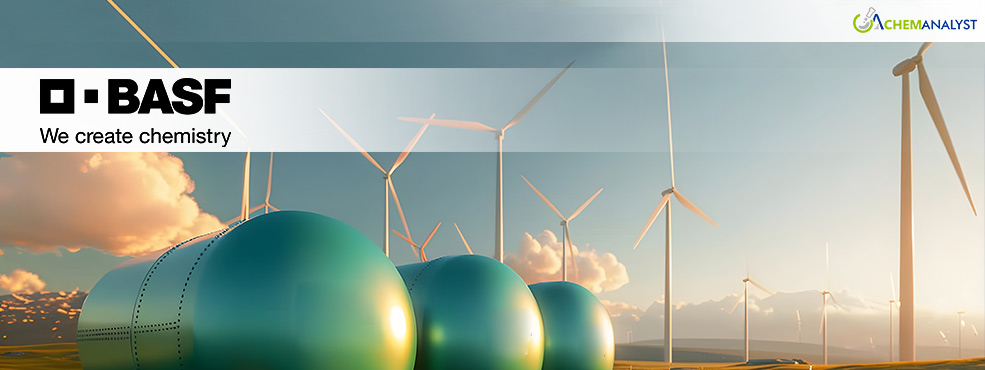Welcome To ChemAnalyst

BASF is extending a distinctive partnership opportunity to the energy sector, offering a specialized portfolio of polyarylethersulfones (PSU, PESU, PPSU) designed specifically for components in water electrolysers that generate green hydrogen. This offering includes not only high-quality materials but also valuable application expertise and dependable local technical support for component design. Leveraging its extensive knowledge of complex injection-moulding processes and membrane casting, BASF is dedicated to assisting clients in scaling up electrolyser technology, thereby facilitating the transition to cleaner energy sources.
The company’s product lineup for electrolyser components features Ultrason grades tailored for various applications, including frames, gaskets, and separator membranes. Attendees can see a sample of an electrolyser frame at the BASF booth during Fakuma 2024 in Germany, where the innovative solutions for green hydrogen production will be showcased.
Ultrason is highly effective for substituting metals in multiple components across different types of electrolysers, including alkaline water electrolysers (AWE), proton exchange membrane electrolysers (PEM), and anionic electrolyte membrane electrolysers (AEM). This amorphous polymer is distinguished by its exceptional resistance to both elevated temperatures and a wide range of chemicals, making it particularly valuable in demanding applications.
Its impressive performance characteristics under rigorous conditions enable it to be processed thermoplastically for the creation of structural parts, ensuring robustness and reliability. Furthermore, Ultrason maintains a consistently high level of purity in separator membranes, which is crucial for the efficient operation of electrolysers. Overall, its unique properties make Ultrason an ideal choice for enhancing the durability and performance of electrolyser components, contributing to the advancement of green hydrogen production technologies.
BASF's polyarylethersulfone plays a crucial role in extending the operational lifespan of electrolysers. Its remarkable ability to withstand the high compressive forces typically present in electrolyser systems ensures that components remain intact and functional under demanding conditions. Additionally, this thermoplastic demonstrates exceptional hydrolytic stability, meaning it can maintain its structural integrity and performance even when exposed to water and moisture over extended periods.
One of the key benefits of BASF's polyarylethersulfone is its versatility in manufacturing processes. It can be effectively employed in both small and large components, accommodating a wide range of production methods, including injection moulding and extrusion. This adaptability not only allows for efficient mass production but also enables manufacturers to tailor components to specific requirements.
The lightweight nature of this material is another significant advantage. Compared to traditional metal components, electrolysers made with BASF's polyarylethersulfone can be considerably lighter, which is essential for improving overall system efficiency and portability. Furthermore, this reduction in weight provides greater design freedom, allowing engineers and designers to explore various configurations and solutions to meet diverse construction needs.
Overall, the combination of durability, hydrolytic stability, and manufacturing flexibility makes BASF's polyarylethersulfone an ideal choice for modern electrolyser technology, paving the way for more efficient and adaptable green hydrogen production systems.
We use cookies to deliver the best possible experience on our website. To learn more, visit our Privacy Policy. By continuing to use this site or by closing this box, you consent to our use of cookies. More info.
